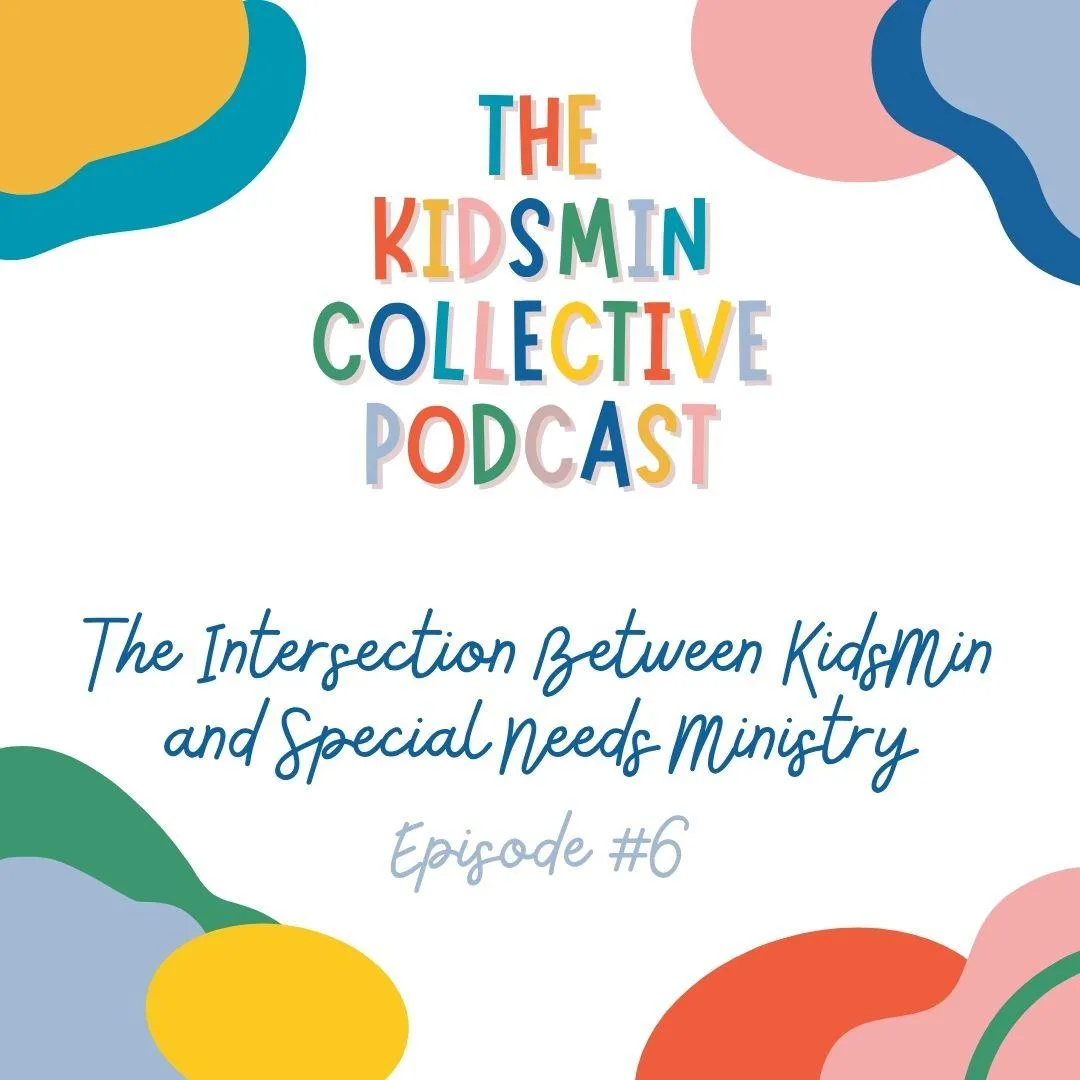
Episode #6 | The Intersection Between KidsMin and Special Needs Ministry
In today’s ministry landscape, more and more kidsmin leaders are asking: “What do I do when a child with special needs shows up in my ministry?” It’s a question that reflects a beautiful and needed shift—a growing awareness that inclusion in KidsMin isn’t just about programming. It’s about posture. It’s about creating a gospel-centered culture that welcomes every child, regardless of how they learn or what support they need.
Why This Intersection Matters
The intersection between children’s ministry and special needs ministry is becoming increasingly vital. Many children with special needs—particularly in the early childhood years—go unnoticed in ministry plans, not out of neglect, but simply because our programming often isn't built with their needs in mind. But inclusion doesn’t begin with a diagnosis or a new ministry program. It begins with intentional awareness and a heart that mirrors God’s.
Jesus constantly welcomed those who were overlooked and marginalized. He met people where they were, and He calls us to do the same. The goal of any KidsMin, including one that supports special needs, is to make the gospel accessible to every child.
Inclusion is a Culture, Not Just a Program
Too often, churches think of inclusion as a side ministry—something optional. But true inclusion must start at the leadership level and flow throughout the church. It should become part of your ministry DNA. When families of children with special needs leave a church, it’s often because they don’t feel there’s a place where their child can belong.
Inclusion doesn’t always require a separate room or specialized equipment. Sometimes it just takes a shift in perspective—a commitment to love, a willingness to listen, and the creativity to adapt.
Where to Begin: Relationships First
If a parent tells you their child may have special needs, or you notice something during programming, start with love. Walk with families. Build trust through consistent, honest communication. Let them teach you about their child—what helps, what hurts, and what triggers overstimulation or fear.
These conversations aren’t always easy, but they are foundational. Your posture should always be one of partnership: “You know your child best. Help me learn how to support them well.”
Practical Ways to Foster Inclusion
While every child and ministry context is different, here are a few practical ideas to get started:
Create flexible environments. Provide quiet spaces for children who are overstimulated. Offer noise-canceling headphones or sensory tools. Let them participate in worship in ways that feel safe and accessible.
Use visual schedules. Posting a basic classroom schedule can provide predictability that many children thrive on.
Equip your volunteers. Offer training in basic disability awareness and create clear protocols for when a volunteer notices something that may indicate a special need.
Assign ministry buddies or peer helpers. Especially in elementary settings, these partnerships can foster friendship, trust, and stability.
Partner with parents. Check in regularly—not just when something goes wrong. Ask about transitions, changes in routine, or new diagnoses. Be a source of encouragement, not just a reporter of behavior.
Equip and Advocate
Don’t worry, if you don’t have a background in special needs, it doesn’t mean you can’t create an inclusive culture in your children’s ministry! Have an open heart and a desire to serve these families and you can create a welcoming place for kiddos with special needs.
You don’t need to be an expert to be effective. Partner with local therapists, educators, or professionals in your church to help equip your team. Invite them to observe and offer suggestions. These insights can help you serve your kids and volunteers more confidently.
Also, don’t overlook the power of simply being present. One mom shared how meaningful it was when I asked her to meet for coffee near her child’s therapy appointment. That small gesture made her feel seen and supported—because it worked for her schedule and showed that I genuinely cared.
Start Small, But Start Now
Inclusion is a journey. You don’t need to launch an entire special needs ministry overnight. Start where you are. Look around. Who’s in your rooms on Sunday morning? Who isn’t coming because they don’t feel welcome?
You have influence right where you are—in your classrooms, in your policies, in how your volunteers think and serve. Let’s use that influence to build bridges, cast vision, and love every child well.
If you need help thinking through these next steps, I’d love to talk. Whether you’re brainstorming how to start, need help equipping your team, or want to create a ministry plan that works for your church, I’m here for you.
Together, we can make KidsMin a place where every child belongs.
